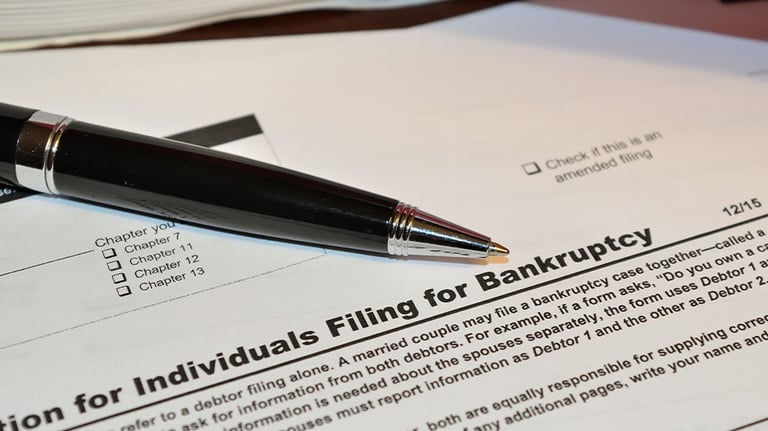What Happens When You File For Bankruptcy?
What bankruptcy is, how it can help you, and potential drawbacks


Bankruptcy, a legal lifeline for those overwhelmed by debt, offers a chance at a fresh financial start. When individuals or businesses find themselves unable to repay their debts, the court intervenes to assess their financial situation and devise a fair distribution plan for creditors. Here's how it works.

What is bankruptcy?
Bankruptcy is a legal process that allows people and businesses who can't repay their debts to seek relief from some or all of what they owe. If you declare bankruptcy, a court steps in to help determine what you can afford to pay and how to distribute that money to your creditors (the people or businesses you owe money to).
Bankruptcy works through one of two options: Chapter 7 or Chapter 13. Chapter 7 bankruptcy initiates the sale of all your assets to address your debts. As a result, you'll liquidate your financial accounts and other forms of wealth. However, you'll keep your primary residence, vehicles, pensions, and Social Security.
On the other hand, chapter 13 bankruptcy allows you to keep all your possessions. Instead, you'll enter a payment plan lasting three to five years, at the end of which you will be free of your debts.
What happens when you file for bankruptcy?
When you file for bankruptcy, your creditors are legally prohibited from contacting you further. In other words, their debt-collecting actions will halt. This benefit will give you some breathing room while you consult with your attorney and the court to work out the repayment plan your bankruptcy case will entail.
You'll also get to retain your assets while the case resolves and plan for a brighter financial future. Plus, you'll have mandatory credit counseling to help you create a more solid financial approach going forward. This aspect can be both a gift and a curse because it also costs time and money.

How long does bankruptcy stay on your credit report?
Bankruptcy also comes with specific drawbacks. For example, bankruptcy stays on your credit report for seven to ten years. As a result, your credit profile suffers, and you may have trouble getting a loan in the future. Furthermore, if you do obtain a loan, your lender will likely charge higher interest rates to cover the risk of another bankruptcy.
Finally, filing for bankruptcy means you must wait a specific period before you can file again. Depending on the type of bankruptcy and the circumstances after filing, you must wait two to eight years before the court will allow another bankruptcy.
Will I still owe money after bankruptcy?
Bankruptcy doesn't eliminate some forms of debt, like student loans and child support. In addition, each chapter has different costs. Therefore, it's crucial to consult with an attorney if you're considering bankruptcy to determine the optimal way to move forward.
